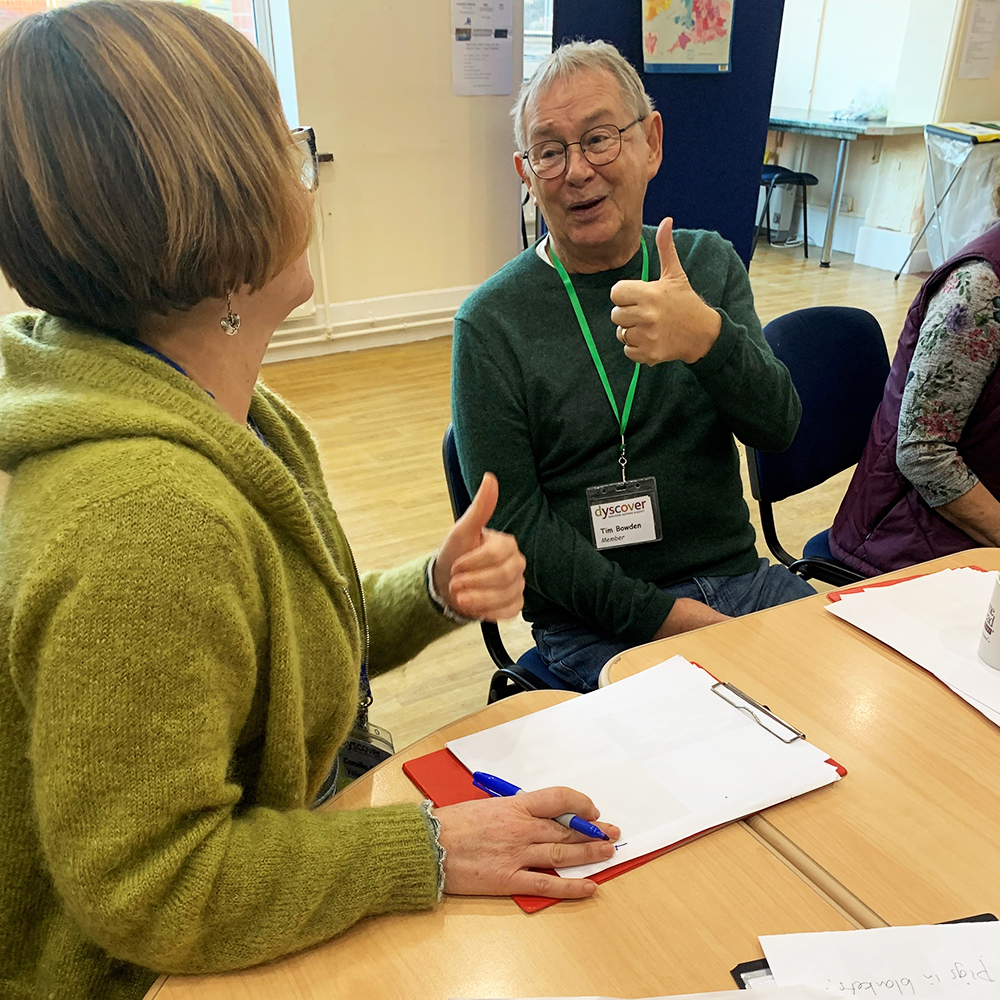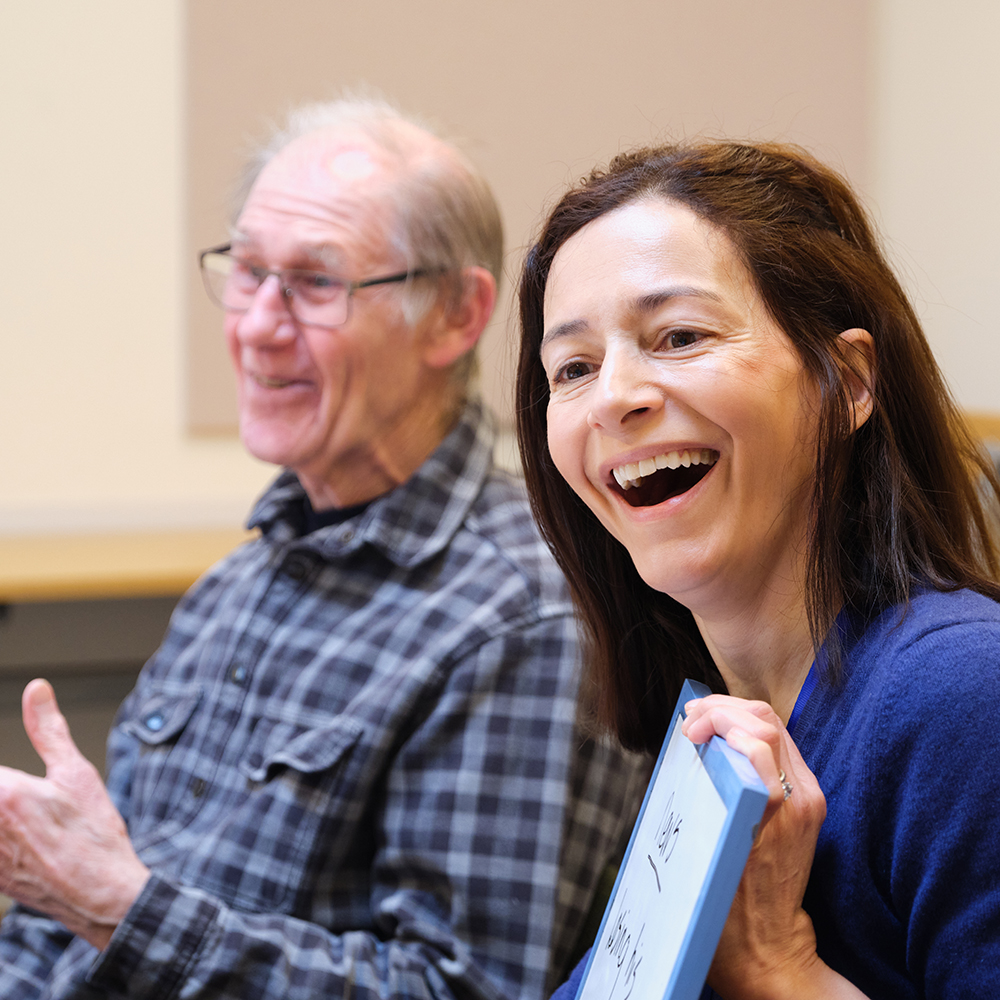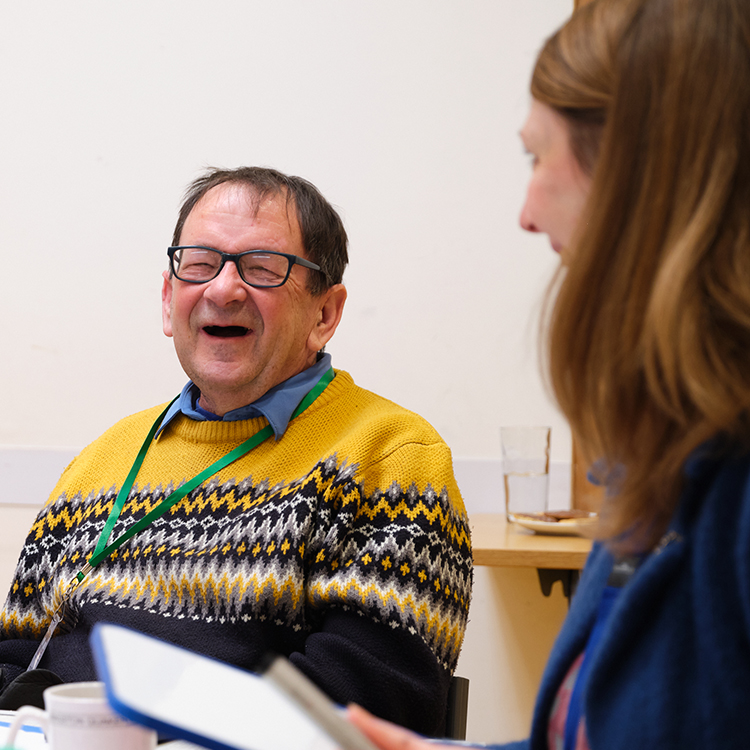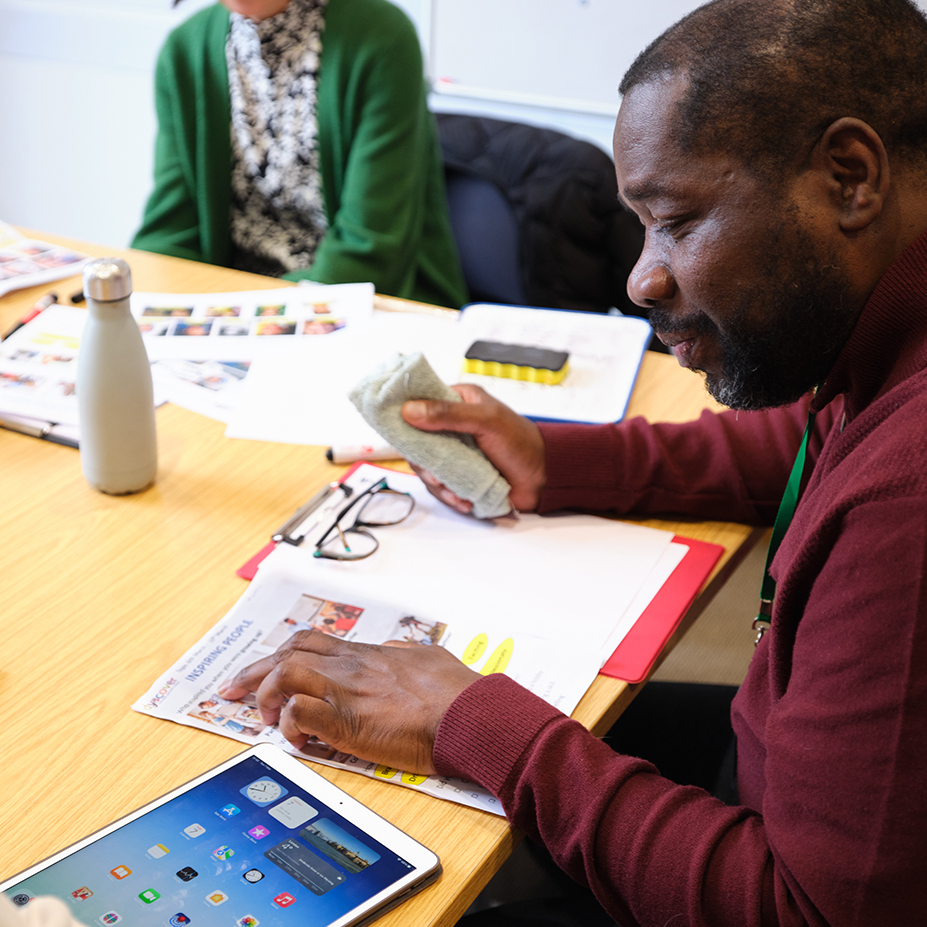Our support is long-term, for as long as people need it. Having so many years of experience, in leading groups for people with stroke acquired aphasia, we know that people have different needs at different stages of recovery. Unlike many other long-term UK aphasia providers, we have tailored our services to reflect the different needs of people and their families at the different stages of recovery following NHS rehabilitation.
We cater for the whole aphasia spectrum of needs, mild to severe. Our services are specialist led by Speech and Language Therapists (SLTs). Based on an individual’s current needs, receipt of a completed referral form and following an initial informal assessment, the most suitable group will be recommended. Dyscover’s services are a structured group set-up, which identifies and then develops skills for purposeful conversation/ functional communication for people with aphasia within a group setting.
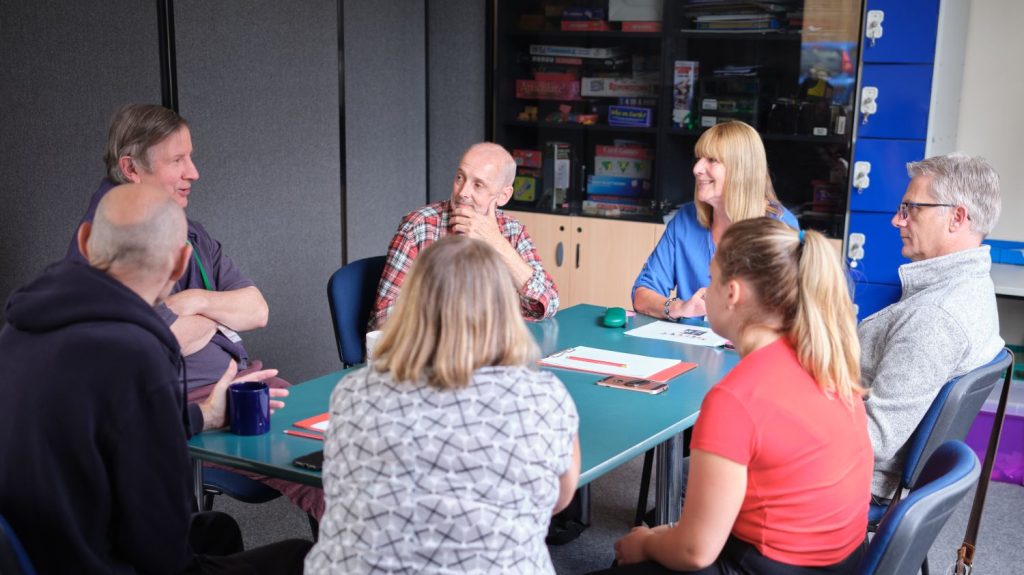
Our groups can hold a capacity of between 8-20 people, are led by an SLT and often an SLT Assistant (SLTA) and supported by a fixed and regular team of volunteers. Our in-person groups will run for 2.5hrs per session and our online groups for 1.5hrs. These sessions run every week across three terms a year (40/52 weeks).
We ask for a termly contribution towards fees to be paid by each participant. Each weekly conversation group costs between £15-£20. In addition we ask for an annual £18 membership subscription. We would not want anyone to miss out on support due to the financial challenges this may pose so ask that you let us know if this might be a problem.
After considering the stage of recovery the person is at, their expectations and goals and any practical considerations, subject to space, we will invite the person to attend one of the following groups:

